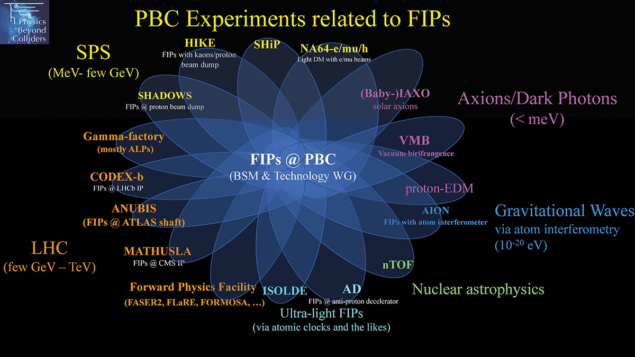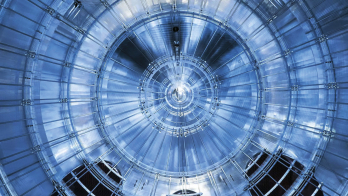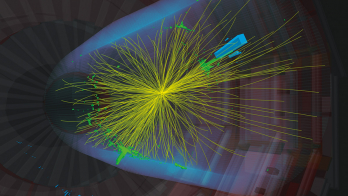
What is the origin of neutrino masses and oscillations? What is the nature of Dark Matter? What mechanism generated matter-antimatter-asymmetry? What drove the inflation of our Universe and provides an explanation to Dark Energy? What is the origin of the hierarchy of scales? These are outstanding questions in particle physics that still require an answer.
So far, the experimental effort has been driven by theoretical arguments that favoured the existence of new particles with relatively large couplings to the Standard Model (SM) and masses commensurate the mass of the Higgs boson. Searching for these particles has been one of the main goals of the physics programme of the LHC. However, several beyond-the-SM theories predict the existence of light (sub-GeV) particles, which interact very weakly with the SM fields. Such feebly interacting particles (FIPs) can provide elegant explanations to several unresolved problems in modern physics. Furthermore, searching for them requires specific and distinct techniques, creating new experimental challenges along with innovative theoretical efforts.
FIPs are currently one of the most debated and discussed topics in fundamental physics and were recommended by the 2020 update of the European strategy for particle physics as a compelling field to explore in the next decade. The FIPs 2022 workshop held at CERN from 17 to 21 October was the second in a series dedicated to the physics of FIPs, attracted 320 experts from collider, beam-dump and fixed-target experiments, as well as from the astroparticle, cosmology, axion and dark-matter communities gathered to discuss the progress in experimental searches and new developments in underlying theoretical models.
The main goal of the workshop was to create a base for a multi-disciplinary and interconnected approach. The breadth of open questions in particle physics and their deep interconnection requires a diversified research programme with different experimental approaches and techniques, together with a strong and focused theoretical involvement. In particular, FIPs 2022, which is strongly linked with the Physics Beyond Colliders initiative at CERN, aimed at shaping the FIPs programme in Europe. Topics under discussion include the impact that FIPs might have in stellar evolution, ΛCDM cosmological-model parameters, indirect dark-matter detection, neutrino physics, gravitational-wave physics and AMO (atoms-molecular-optical) physics. This is in addition to searches currently performed at colliders and extracted beam lines worldwide.
The main sessions were organised around three main themes: light dark matter in particle and astroparticle physics and cosmology; ultra-light FIPs and their connection with cosmology and astrophysics; and heavy neutral leptons and their connection with neutrino physics. In addition, young researchers in the field presented and discussed their work in the “new ideas” sessions.
FIPs 2022 aimed not only to explore new answers to the unresolved questions in fundamental physics, but to analyse the technical challenges and necessary infrastructure and collaborative networks required to answer them. Indeed, no single experiment or laboratory would be able by itself to cover the large parameter space in terms of masses and couplings that FIPs models suggest. Synergy and complementarity among a great variety of experimental facilities are therefore paramount, calling for a deep collaboration across many laboratories and cross-fertilisation among different communities and experimental techniques. We believe that a network of interconnected laboratories can become a sustainable, flexible and efficient way of addressing the particle physics questions in the next millennium.
The next appointment for the community is the retreat/school “FIPs in the ALPs” to be held in Les Houches from 15 to 19 May 2023, to be followed by the next edition of the FIPs workshop at CERN in autumn 2024.








